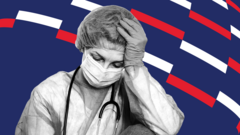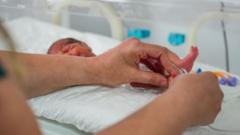As most of the world has shifted to typing, the legibility of handwritten prescriptions has come under scrutiny. In India, a recent directive from the Punjab and Haryana High Court has declared that legible medical prescriptions are a fundamental right. The court's order stems from a case wherein a doctor's illegible handwriting sparked concerns over its potential impact on patient care.
Justice Jasgurpreet Singh Puri noted that comprehension issues in medico-legal reports could sway court decisions, emphasizing that unclear handwriting could literally make a difference between life and death.
This ruling was triggered by a case involving serious accusations of rape and deceit where the judge found a medical report indecipherable. Not even a word or a letter was legible, he remarked, highlighting the urgent need for reform.
The court urged the government to insert handwriting training into medical education curricula and set a two-year timeline for implementing digital prescriptions. In the interim, all medical prescriptions must be written in capital letters.
Dr. Dilip Bhanushali, head of the Indian Medical Association, acknowledged the challenges, particularly in rural areas where doctors face overwhelming patient loads. He emphasized the association's commitment to enhancing prescription clarity to ensure patient safety.
Historically, this issue has caught judicial attention before, with prior court instances in Odisha and Allahabad highlighting the necessity of legible medical documentation.
Health professionals underscore that unclear prescriptions can lead to dire consequences. Citing a report from the Institute of Medicine, it's noted that an estimated 44,000 preventable deaths occur annually in the U.S. due to medical errors, alongside cases like misprescribed medications in Scotland that resulted in severe health complications.
In light of these revelations, India's health authorities are encouraged to adopt electronic prescription systems to mitigate misinterpretation risks, ensuring the safety and well-being of patients nationwide.














